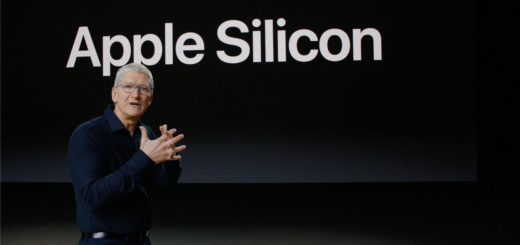Конгресс отправил письмо Apple с вопросом о Path и доступе к данным
Генри Ваксман (Председатель комитета по коммерции и энергетике) и Г.К. Баттерфилд (Председатель подкомитета по торговле) отправили сегодня письмо Apple в соответствии с жалобами, что мобильное приложение Path собирает данные адресной книги и хранит их на удаленных серверах без разрешения пользователя.
Хотя Дейв Морин (СЕО Path) принес свои извинения за действия приложения, и практически сразу вышло обновление Path с уведомлением, которое предупреждает пользователя о том, что программа имеет доступ для просмотра и хранения данных адресной книги, письмо ставит под вопрос действия других разработчиков приложений – имеют ли они доступ к данным пользователя, и как они ими распоряжаются.
В обращении к генеральному директору Apple Тиму Куку:
Этот инцидент вызывает вопросы о том, как политика и практика разработчиков приложений для iOS могут оказаться ниже, чем защита информации пользователей iPhone.
Также Баттерфилд и Ваксман цитируют небольшой отрывок из сайта Apple для разработчиков iOS, в котором говорится, что Apple предоставляет всеобъемлющий набор инструментов и механизмов для хранения, доступа и обмена данными. Затем под сомнение ставится тот факт, требует ли Apple у приложений спрашивать пользователя разрешение на манипуляцию конфиденциальными данными.
Кроме этого, в письме приводится цитата статьи Дастина Куртиса (Dustin Curtis) – “Stealing Your Address Book”, которая заявляет: “многие разработчики приложений для iOS понимают, что есть возможность отправлять адресную книгу пользователя без разрешения”, а также сообщение, что разработчики приложений могут располагать контактами Марка Цукерберга, Ларри Эллисона и Билла Гейтса.
Баттерфилд и Ваксман дают Apple возможность ответить на письмо до 29 февраля
Mr. Tim Cook
Chief Executive Officer, Apple Inc.
1 Infinite Loop
Cupertino, CA 95014
Dear Mr. Cook:
Last week, independent iOS app developer Arun Thampi blogged about his discovery that the social networking app “Path” was accessing and collecting the contents of his iPhone address book without ever having asked for his consent.[1] The information taken without his permission – or that of the individual contacts who own that information – included full names, phone numbers, and email addresses.[2] Following media coverage of Mr. Thampi’s discovery, Path’s Co-Founder and CEO Dave Morin quickly apologized, promised to delete from Path’s servers all data it had taken from its users’ address books, and announced the release of a new version of Path that would prompt users to opt in to sharing their address book contacts.[3]
This incident raises questions about whether Apple’s iOS app developer policies and practices may fall short when it comes to protecting the information of iPhone users and their contacts.
The data management section of your iOS developer website states: “iOS has a comprehensive collection of tools and frameworks for storing, accessing, and sharing data. . . . iOS apps even have access to a device’s global data such as contacts in the Address Book, and photos in the Photo Library.”[4]The app store review guidelines section states: “We review every app on the App Store based on a set of technical, content, and design criteria. This review criteria is now available to you in the App Store Review Guidelines.”[5] This same section indicates that the guidelines are available only to registered members of the iOS Developer Program.[6] However, tech blogs following the Path controversy indicate that the iOS App Guidelines require apps to get a user’s permission before “transmit[ting] data about a user”.[7]
In spite of this guidance, claims have been made that “there’s a quiet understanding among many iOS app developers that it is acceptable to send a user’s entire address book, without their permission, to remote servers and then store it for future reference. It’s common practice, and many companies likely have your address book stored in their database.”[8] One blogger claims to have conducted a survey of developers of popular iOS apps and found that 13 of 15 had a “contacts database with millions of records” – with one claiming to have a database containing “Mark Zuckerberg’s cell phone number, Larry Ellison’s home phone number and Bill Gates’ cell phone number.”[9]
The fact that the previous version of Path was able to gain approval for distribution through the Apple iTunes Store despite taking the contents of users’ address books without their permission suggests that there could be some truth to these claims. To more fully understand and assess these claims, we are requesting that you respond to the following questions:
– Please describe all iOS App Guidelines that concern criteria related to the privacy and security of data that will be accessed or transmitted by an app.
– Please describe how you determine whether an app meets those criteria.
– What data do you consider to be “data about a user” that is subject to the requirement that the app obtain the user’s consent before it is transmitted?
– To the extent not addressed in the response to question 2, please describe how you determine whether an app will transmit “data about a user” and whether the consent requirement has been met.
– How many iOS apps in the U.S. iTunes Store transmit “data about a user”?
– Do you consider the contents of the address book to be “data about a user”?
– Do you consider the contents of the address book to be data of the contact? If not, please explain why not. Please explain how you protect the privacy and security interests of that contact in his or her information.
– How many iOS apps in the U.S. iTunes Store transmit information from the address book? How many of those ask for the user’s consent before transmitting their contacts’ information?
– You have built into your devices the ability to turn off in one place the transmission of location information entirely or on an app-by-app basis. Please explain why you have not done the same for address book information.
Please provide the information requested no later than February 29, 2012. If you have any questions regarding this request, you can contact Felipe Mendoza with the Energy and Commerce Committee Staff at 202-226-3400.
Sincerely,
Henry A. Waxman, Ranking Member
G.K. Butterfield, Ranking Member
Subcommittee on Commerce, Manufacturing, and Trade


